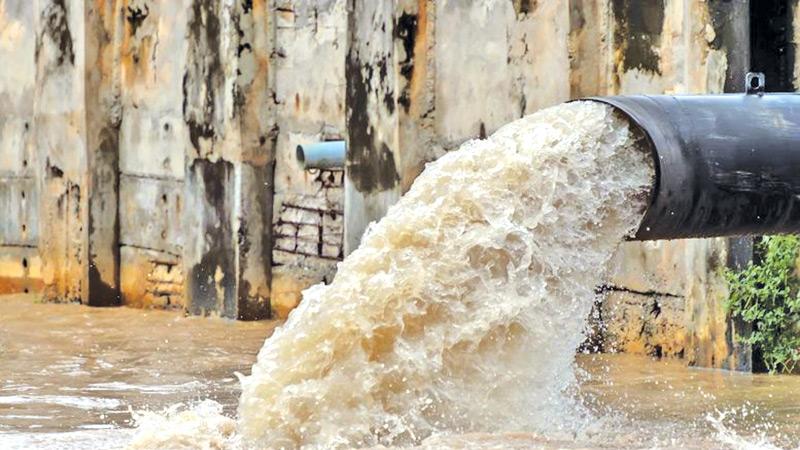
Sri Lankan civilisation built on water management, has mastered it for thousands of years, and nowadays more than 92 percent of the total population benefit from basic water services at least. The priority granted by the Government to the “Water for all” social program will further improve the coverage and quality of service, which will in turn result in increased volumes of water consumed and wastewater released in the environment. As economic activities and cities develop, Sri Lanka is indeed facing growing pressure on its natural resources and has to counter threats to its biodiversity and landscapes, which are among the country’s main assets.
Safely managing wastewater through urban sewerage is one of such mitigation measures, but while almost 94 percent of Sri Lanka population benefits from basic sanitation services, only 2.1 percent are connected to a sewerage network, whose development provides undeniable benefits from both an environmental and public health perspective – and is also associated with huge investment costs.
Unfortunately, the present sewerage service fees are not aligned with such investment or operating costs, putting the burden on the taxpayer rather than on the actual polluter. This tariff also fails to achieve the transfer mechanisms from high- to low-income groups. Indeed, the present sewerage tariff for domestic customers includes a fixed service charge of Rs.200 month as well as a proportional charge between Rs.1 and Rs.2 only per m3 of water consumed. In other words, your sewer bill will essentially be the same whether you use little water for your basic needs only, or use plenty of it to wash your car or fill your swimming pool.
A draft National Sanitation Policy recently validated introduces a number of principles – such as cost recovery, polluter pays, cheaper for the poorest – that should alleviate these shortcomings in the sewerage tariff structure. As Sri Lanka plans to double its sewer coverage to 4 percent by 2030, the opportunity should be seized to introduce fairer tariffs for sewerage – i.e. cheaper for most of the population – in all existing and newly developed schemes.
The French Agency for Development (AFD) and NWSDB have developed since 2014 a strategic partnership covering both water and sewerage projects. AFD and the European Union support NWSDB’s activities through subsidised loans at reduced rates covering infrastructure costs and grants addressing improvements in governance, operation and maintenance. These projects, now at implementation stage, should provide full sewerage services (from household connection to release of treated effluents in the environment) for 73,000 residents in Negombo and another 44,500 residents in Ratmalana/Moratuwa.
The NWSDB and AFD are looking forward to seeing entire districts getting upgraded within the next years, and trust that, as new sewer networks develop throughout busy city streets, so will citizens’ awareness of the actual service provided and the resulting improvement in their living environment.
Moving towards offsite sanitation in densely populated areas (i.e. climbing up the “sanitation ladder”) is inherent to development, and the public health benefits are worth the costs. Particularly for Sri Lanka, this represents a profitable investment that further preserves nature, tourism and the economy.
